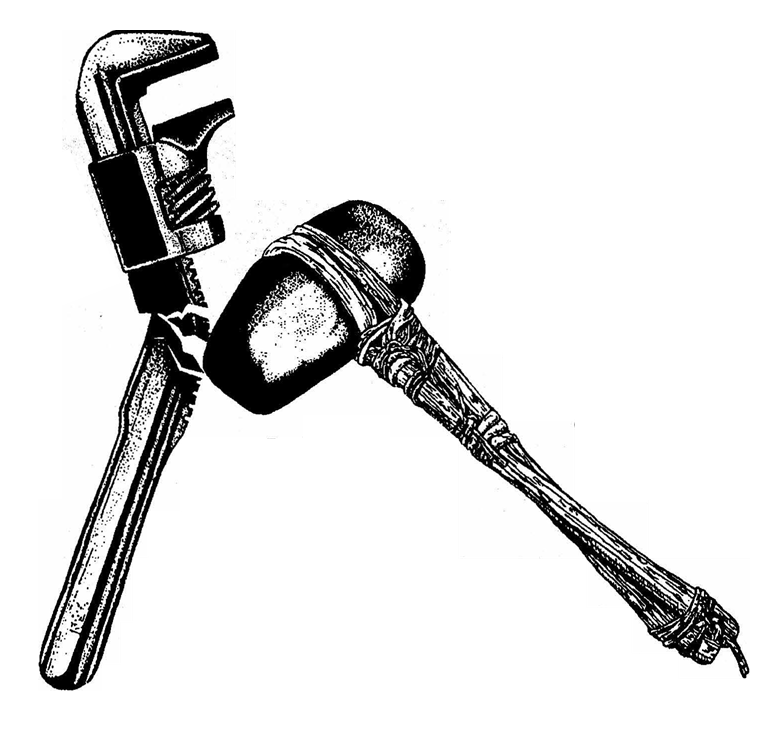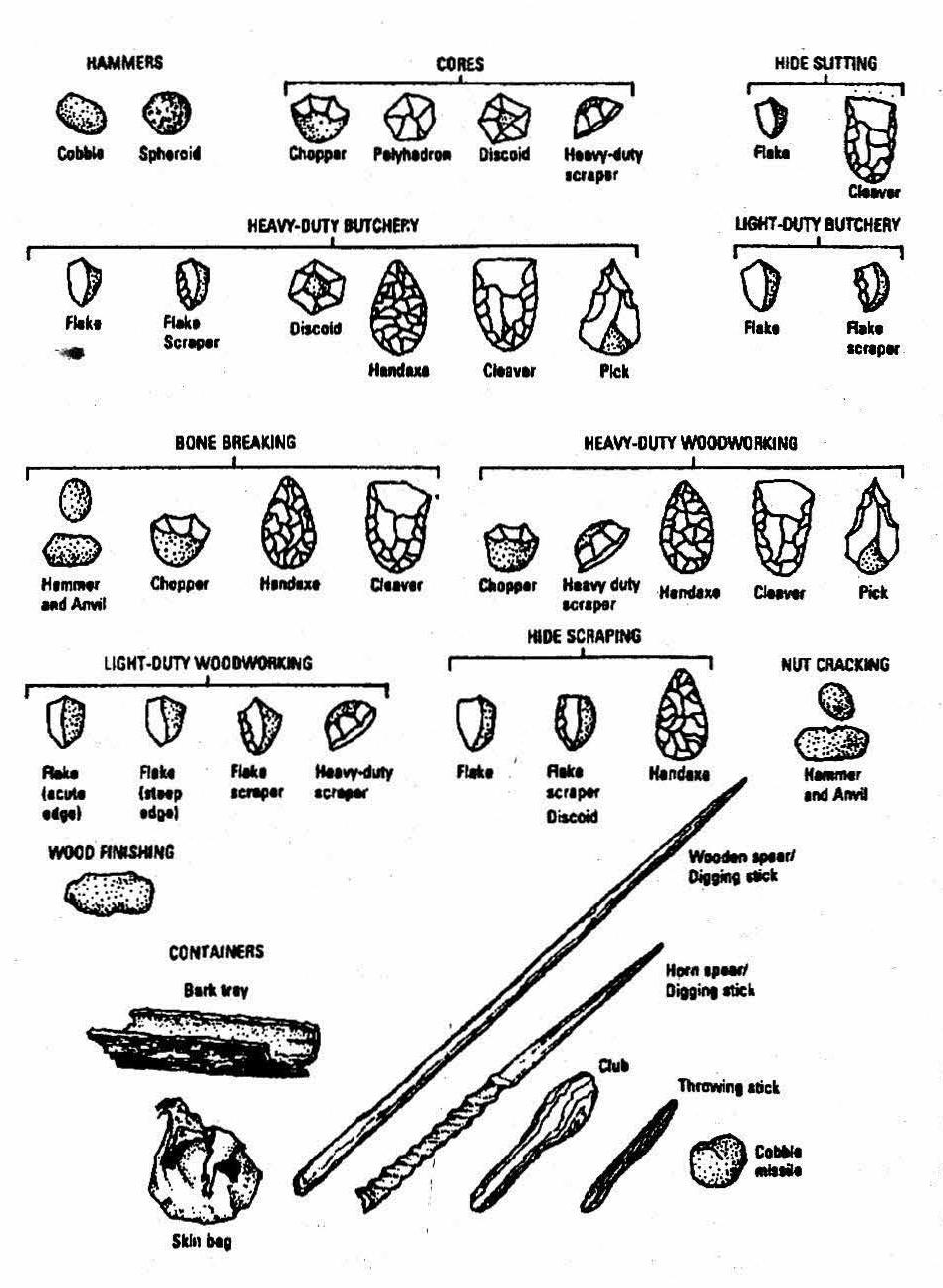Bugbreath
(Ab)original Knowledge
Primitivism, N(1861) A: Belief in the superiority of a simple way of life close to nature B: Belief in the superiority of nonindustrial society to that of the present 2: The style of art of primitive peoples or private artists
I used to feel annoyed with the universe for placing me here on Earth at this time. I felt lost and displaced. This world of concrete and clearcuts was not my world. I know the joy and connection of being part of a tribe living in harmony with Earth. I know it deep in my genetic memory so strongly that I am sure I have lived before in a primitive village of forest-ocean people. I long to be free of the linear time trap and to know wholeness again.
But as I learn about the changes happening to the Earth, I understand that it is a great honor to be here at this difficult and exciting time. I know that my soul has chosen to participate in a vast event, the passing of one world into the next, and I pray that spirit will guide me, that I will be open to receive the messages. Sometimes, the way before me becomes clear and I know what I must do.
This was my experience last summer when I knew that somehow, somewhere, I had to go to a primitive skills gathering. A winter of forest activism had left me feeling burned out, as if all the energy had been sucked out of me. I was craving rejuvenation. Before I even made it to the gathering at Wintercount, I challenged myself and expanded my parameters of the possible by departing from veganism and eating a grasshopper toasted on a campfire on the bank of the Verde River in Arizona.

On the first day at Wintercount, I made fire. No matches, no lighter, just wood and friction. I used three different methods—a drill, a bow drill and a fire plow—to transform pure energy into a tiny smoking coal which I then carefully dropped into a tinder bundle and fanned into a fireball. What a rush! Something which had seemed remote and difficult was suddenly at my fingertips. It was not only achievable, but fun!
The next day I began the project that would be my focus: braintanning a deer hide. As I looked at the fresh skin spread on the ground with a bit of flesh still attached here and there, I was in awe. I hesitated before touching it. Before it dried, I took it in my hands and started puncturing the edges with a knife so we could stretch it on a frame. For days I persevered patiently and diligently, scraping it, soaking it in brains, wringing it out, breaking it, buffing it, smoking it until it was velvety, like worn-in flannel, ready to be carried with me. I am grateful for the little deer whose life and death has become a part of my life.
Feeling myself existing within these cycles of life and death, learning how to meet my needs using materials from the Earth, experiencing intimacy and connection with the source, is humbling and inspiring. I have always enjoyed artistic creation. I have experimented with various mediums, but by last summer, I was fed up with paper and pens and other factory-made objects. How could my creative energy be funneled through “art supply products?” My experiments with basket weaving brought a revelation. I could pick up parts of plants and rearrange them to create something new. It was pure—my energy combined with the plants’ energy. No blowtorches, electricity or weird processing that steals energy from the Earth. At Wintercount I was exposed to a plethora of new/old mediums. The skills and crafts shared by the generous and knowledgeable instructors go way beyond survival. The potential for artful self-expression is wide open.

Along with hide-tanning, I was able to attend or peruse workshops on pineneedle baskets, fat lamps, shell etching, mineral paints, knapping obsidian blades and other tools, knots and lashing with natural materials, gourd canteens, roadkill, pecking and grinding stones, arrow making, stars and planets, a bit of desert survival, and a discussion of EoT (end of time). Other classes offered included bow making, pottery (made in a pit fire), cordage, digery doos, rattles and other instruments, finding and collecting water, spoon carving, knife sharpening, plant walks, survival skills and abo travels, felting, beading, yucca sandals, tracking, trapping, moccasins, weaving, aboriginal backpacks, nets, masks, healing, pattern making, sewing, crocheting, atlatls, birchbark baskets, blow darts, acorn cooking and cactus eating.
Wintercount folk provided examples of exquisite, detailed, labor-intensive crafts. More than any particular formula for “how to,” a resourcefulness and a new way of viewing the world around me made me a participant instead of a consumer. I am involved in constant transformation. Now a plant stalk is potentially fiber for rope, sap and charcoal are glue, a carcass is a sacred array of useful bones, sinews, skin and meat.
In our travels around Arizona after the gathering, my sweetie and I had an invigorated approach to creating shelter in a variety of environments and weather conditions. One night we filled a stick frame with high-piled dry pine needles and ferns to insulate ourselves from the snow-covered ground. Snuggled in our soft nest, we were actually hot while the ground froze around us.
Primitive skills are about experimentation and experience. They’re about getting your hands in the dirt and muck and pulling civilization out by the roots. Did you know you can eat every part of the cattail and make mats and hats and torches from it too? Did you know it’s kinder to our mother to eat roadkill venison than a banana which is shipped across the seas to grace your health food store?
As the changes come, survival is dependent upon working with the materials around us. This system of factories and transportation won’t cater to our soy-milk-drinkin’, polypro-usin’ lifestyles much longer. Step by step, we progress down the path toward the glowing vision of harmony with Earth, departing this world of koyaanisquatsi as it falls down around us. Let’s make the changes in our own lives now while we still have the luxury of a safety net that gives us room to remember the treasures stored in our genetic memory. A wise woman recently told me we need to learn nothing new, we need only remember what we already know.
The Earth Circle Gathering will be held in Grangeville, Idaho, July 26–31, $125, for information call (406) 685–3222; Earth Knack Gathering Boulder, Colorado, June 1824; $225, (406) 685–3222. The Rabbitstick Rendezvous in Rexburg, Idaho, September 12–18, $225, (208) 359–2400. For more information about upcoming abo skills events (work/trade opportunities are available), contact Hollowtop at (406) 685–3222; www.hollowtop.com.
